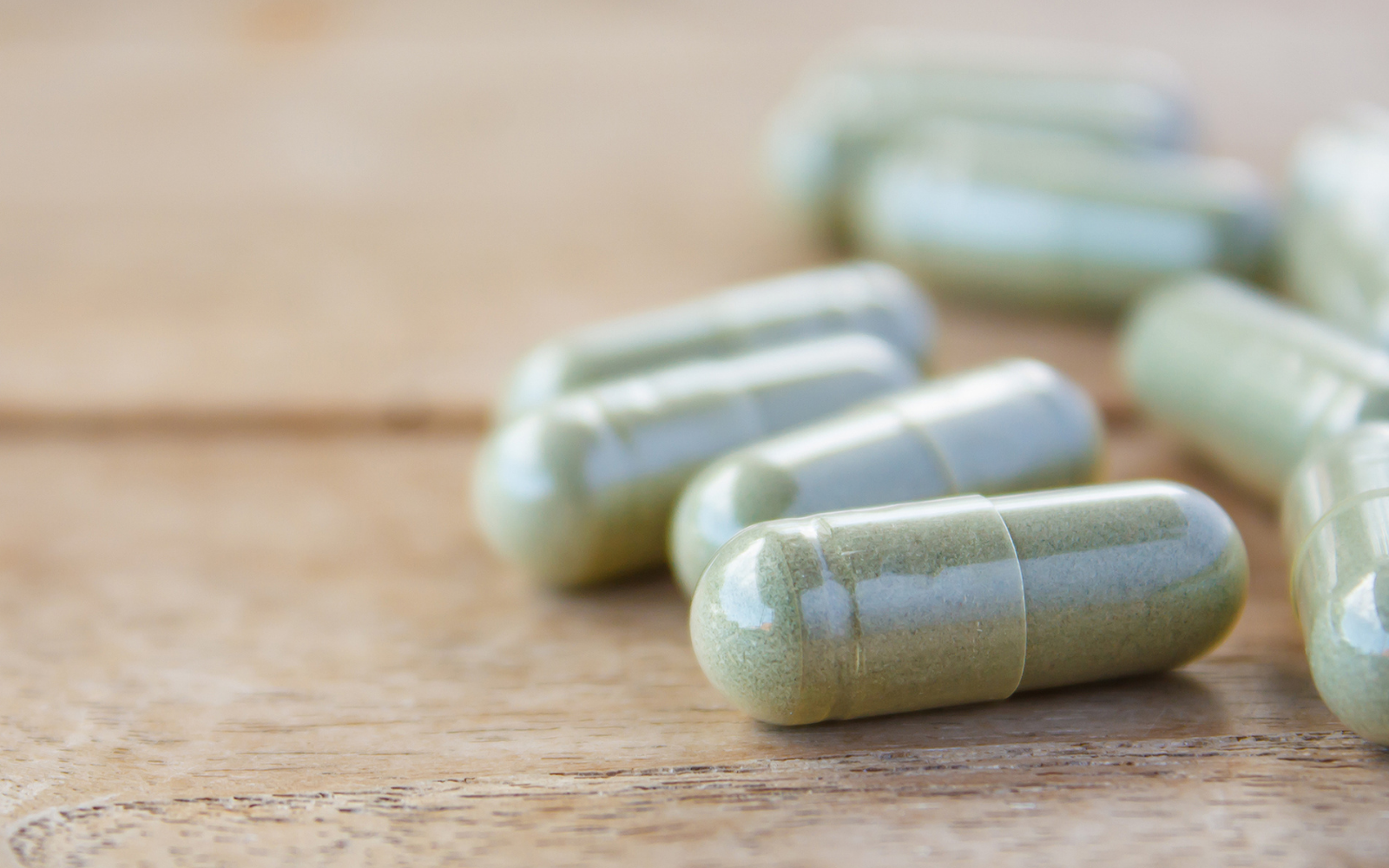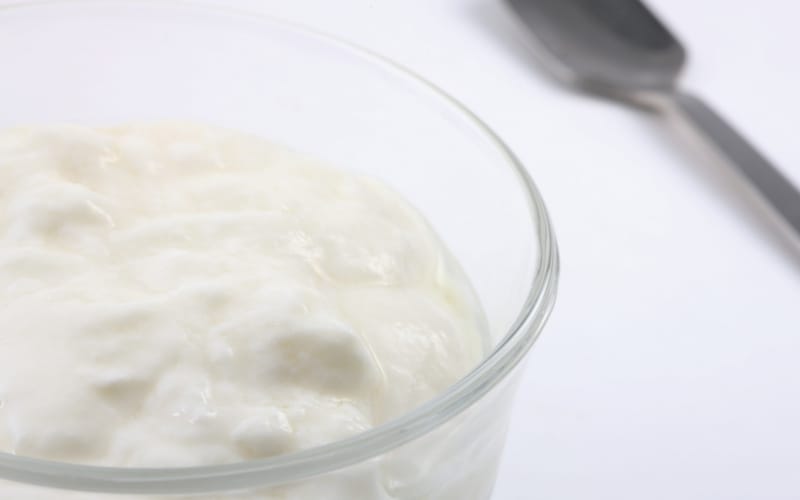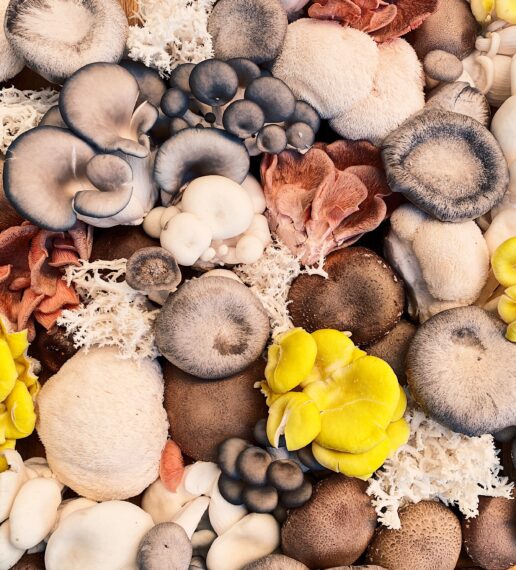Synbiotics: The Incredible Synergy of Gut Bacteria

Even if you’re not up to speed on the latest news in health and wellness, there’s a good chance you’ve been hearing a lot about probiotics and how they relate to gut health. Often referred to as “good bacteria,” probiotics are linked to a host of health benefits including a stronger immune system, improved digestion, weight loss (1) and even the suppression of breast cancer. (2) No wonder the use of probiotics continues to climb!
Although these friendly bacteria are essential for balanced gut microbiota, probiotics can’t do it all alone. They need the help of similarly named friends, called prebiotics. Together, probiotic bacteria and prebiotic fiber create a natural synergism for your digestive system.
However, this synergy can get easily disrupted by things like poor diet, illness, stress, or environmental factors. (And when you consider that the average American diet is far from ideal, it’s easy to see how things can get off track quite quickly.)
That’s when synbiotics can help.
What Are Synbiotics?
Synbiotics are dietary supplements or food ingredients that combine both prebiotics and probiotics in order to support gut health. While a diverse, nutrient-rich diet could potentially give you all the probiotics and prebiotics you need for a healthy gut microbiome, the reality is that some probiotics might not actually make it alive to the gastrointestinal tract where they can thrive and fight off pathogenic bacteria. (3)
Why don’t they survive? Well, it’s mainly because stomach acid and bile salts prove too strong for them. (4) However, research has shown that synbiotics not only improve the survival of such beneficial bacteria, but they can also stimulate the growth of specific native bacterial strains already present in the gastrointestinal tract. (3)

Probiotics, Prebiotics, and Synbiotics
With all this talk of “biotics” it might get a little confusing, but don’t worry. Once you get a grasp of the basics, you’ll know your probiotics from your prebiotics and synbiotics in no time. Read on for a quick rundown of these crucial players in human health.
Probiotics
Probiotics are the live microorganisms that naturally populate the intestines. They are also found in fermented food and drinks such as apple cider vinegar, sauerkraut, pickles, kimchi, miso soup, tempeh, sourdough bread, kombucha tea, and dairy products like yogurt, kefir, and sour cream.
You can also find probiotics in dietary supplements, often in capsule form.
Probiotic bacteria have long been studied for their connection to balancing and boosting the immune system. (5) In keeping this delicate balance, probiotics are linked to a wide variety of beneficial effects, especially when it comes to preventing and alleviating diarrhea (6), irritable bowel syndrome (7), and inflammatory bowel disease. (8)
Probiotics are also linked to helping many other conditions including those affecting the nervous system (9) and even anxiety.
Prebiotics
Like probiotics, prebiotics live in the body and are derived from the foods we eat. Examples of prebiotic foods include soybeans, avocados, asparagus, chicory root, whole grains, onions, oats, honey, and green bananas.
Unlike probiotics, prebiotics are not bacteria. They are the fiber (aka non-digestible carbohydrates) that feed and stimulate the growth of probiotic bacteria. That means probiotics can’t get the job done unless they have plenty of prebiotics to keep them going.
Research has shown that prebiotics doesn’t just feed probiotic bacteria—they also improve nutrient absorption and have their own health benefits. Some of these beneficial effects include improved gut barrier function, stronger immunity, better calcium and magnesium retention, stronger bones, reduced triglyceride levels, and improved weight and appetite control due to improved gut health. (10)
Synbiotics
As you can see, the synergy between probiotics and prebiotics is essential for good health. Their combined effect is greater than the sum of their separate effects, and that’s why synbiotics are so important. But not all synbiotics are created equal. The key is to get the right synbiotic formulation to optimize its impact on intestinal flora as well as the appropriate dosage. (11)
Synbiotics typically contain probiotic strains of bifidobacterium, streptococcus, and lactobacillus (such as lactobacillus plantarum, lactobacillus rhamnosus, lactobacillus acidophilus) and prebiotics like fructans, lactulose, and inulins. (12)
Postbiotics
Wait, another biotic? Just when you thought you had them all down, there’s another one you need to know. Simply put, postbiotics are the byproduct of the probiotic activity in the intestines. Recognized as an “evolving term in the functional foods field,” a 2018 review of postbiotics found that these compounds may have anti-inflammatory, immune-boosting, and antioxidant effects as well as potential to help with obesity, high blood pressure, and high cholesterol. (13)
Keep in mind that the exact mechanisms of postbiotics are just in the beginning stages, so more research including clinical trials are needed.

Benefits of Synbiotics
Whether you choose to take a synbiotic nutritional supplement or simply adopt a diet rich in probiotic and prebiotic foods, the bottom line is that synbiotics have the potential to help you in a number of ways. According to a 2017 report, synbiotics “may be highly efficient in the prevention of osteoporosis, reduction of blood fat and sugar levels, regulation of the immunological system, and treatment of brain disorders associated with abnormal liver function.” (14)
Below are a few other benefits.
Digestive Health
Studies have established the beneficial effects that synbiotics can have on gut flora. One animal study concluded that significant improvement to the digestive system was reached by increasing the probiotics population and digestive enzyme activities in rats.(15)
Immune Function
Given that 70-80% of immune cells are found in the human gut, it’s no surprise that the digestive system plays a central role in the immune system, helping to protect the body against infection and disease. (16)
Anti-inflammatory
Chronic inflammation has been linked to a number of serious conditions including digestive disorders—irritable bowel syndrome, inflammatory bowel disease Crohn’s disease, ulcerative colitis—as well as heart disease, diabetes, obesity, and cancer. (17) Studies show that certain combinations of probiotics and synbiotics have anti-inflammatory effects on these diseases. (18)
Mental Health
You might have heard of the gut-brain connection, which demonstrates how the gut microbiome affects brain function. A systematic review published in 2016 found that certain probiotic strains including lactobacillus and bifidobacterium could not only enhance memory, but also alleviate anxiety, depression, and autism spectrum disorder. (19)
Side Effects of Synbiotics
Synbiotics are generally regarded as safe and most people don’t experience side effects. However, every person is different and synbiotic formulations vary, so there’s always a chance of potential side effects.
These might include gas, bloating, diarrhea, and/or flatulence.
Symptoms usually subside within a few days as your body adjusts. That said, older adults and those with a weakened immune system caused by illness or medication are at risk of infection from excessive probiotic bacteria. (20) Be sure to talk to your physician before taking any new nutritional supplements.

A Symbiotic Relationship
The more you learn about probiotics, prebiotics, synbiotics, and postbiotics, the old adage “you are what you eat” rings truer than ever. What you eat still has the greatest impact on your health, so be sure to nourish your body with nutritious whole foods that are packed with probiotics and prebiotics.
Limit your intake of processed foods, refined sugars, and unhealthy fats. For breakfast, try oatmeal drizzled with honey and a dollop of yogurt. For lunch, instead of reaching for that bologna sandwich on white bread (does anyone still eat bologna sandwiches?!), try avocado toast on whole-grain or sourdough bread. For dinner, make a delicious stir-fry with tempeh, asparagus, onions and wash it down with a kombucha drink.
If you decide that a synbiotic supplement is right for you, only buy from reputable brands and do your research. Getting the proper combination of probiotic strains and prebiotics as well as the proper dosage is the best way to ensure a beneficial effect.

